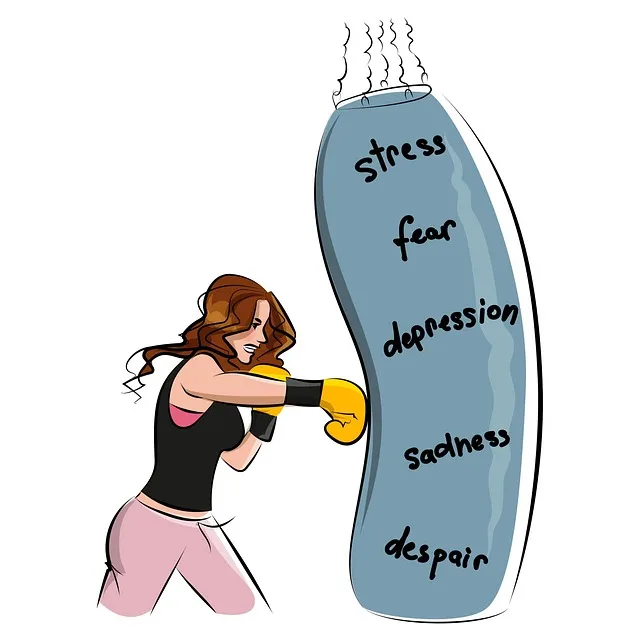Mental wellness journaling, recognized by the Kaiser Permanente behavioral health center in Louisville as a powerful tool, effectively navigates emotional landscapes, enhances Emotional Intelligence, and promotes personal growth. By regularly documenting experiences, emotions, and insights, individuals gain valuable perspectives, track progress, identify patterns, and manage stress more effectively. This practice empowers transformation of challenges into growth opportunities, revealing hidden strengths and fostering introspection, making it a beneficial complement to professional behavioral health services.
Unwind your mind and embark on a journey of self-discovery with mental wellness journaling. This powerful tool, backed by research from Kaiser Permanente behavioral health centers in Louisville, offers a personal space for reflection and growth. In this article, we explore the benefits of journaling for emotional wellbeing, provide guidance on creating your own journal, and offer mindful writing prompts inspired by Kaiser Permanente’s expertise. Dive into these practices to enhance your mental wellness today.
- Understanding Mental Wellness Journaling: A Personal Journey
- The Benefits of Journaling for Behavioral Health in Louisville
- Creating Your Journal: Tools and Techniques from Kaiser Permanente
- Practicing Mindfulness: Writing Prompts for Emotional Wellbeing
Understanding Mental Wellness Journaling: A Personal Journey

Mental wellness journaling is a powerful tool for self-reflection and personal growth, allowing individuals to navigate their emotional landscapes. It’s a practice that encourages people to delve into their thoughts and feelings, much like exploring a complex labyrinth, where each turn reveals a new layer of understanding. At the Kaiser Permanente behavioral health center in Louisville, we often emphasize the importance of this practice as part of our commitment to fostering Mental Health Awareness.
By jotting down experiences, emotions, and insights on a regular basis, individuals can enhance their Emotional Intelligence and gain valuable perspectives. This simple yet profound exercise enables them to track their progress, identify patterns, and manage stress more effectively. Through journaling, folks can transform their relationship with challenges, turning them into opportunities for growth and transformation, much like a metamorphosis that reveals hidden strengths.
The Benefits of Journaling for Behavioral Health in Louisville

Journaling has emerged as a powerful tool for enhancing mental wellness and self-awareness, especially in navigating challenging behavioral health issues. The Kaiser Permanente behavioral health center Louisville recognizes the potential of this practice and encourages its use as a therapeutic adjunct. By putting pen to paper, individuals can explore their thoughts, emotions, and experiences, offering a safe space for introspection. This simple yet profound act allows one to reflect on their feelings, identify triggers, and gain insights into their behaviors, which is particularly beneficial in managing conditions such as anxiety, depression, and even trauma.
For those who have experienced trauma or are dealing with burnout, journaling can serve as an effective outlet for processing difficult memories and emotions. It provides a sense of agency and control, enabling individuals to make sense of their past experiences and work towards healing. Moreover, regular journaling can improve coping mechanisms, enhance self-care practices, and support the development of healthy habits, making it a valuable resource in Louisville’s behavioral health landscape, especially when coupled with professional services like Trauma Support Services or tailored Risk Management Planning for Mental Health Professionals.
Creating Your Journal: Tools and Techniques from Kaiser Permanente

Creating your mental wellness journal is a powerful step towards taking charge of your emotional well-being, and resources like the Kaiser Permanente behavioral health center in Louisville offer valuable guidance on this journey. They suggest starting with a dedicated space and tools that suit your preferences. This could be as simple as a notebook or a digital document where you can record your thoughts without judgment.
The process involves personalizing your journal to enhance its effectiveness. Incorporate techniques like setting specific themes for each entry, such as gratitude, self-care practices, or reflections on challenging situations. Over time, this practice fosters resilience building and provides a space for mental health policy analysis and advocacy, allowing you to track patterns and progress in fighting mental illness stigma reduction efforts.
Practicing Mindfulness: Writing Prompts for Emotional Wellbeing

Practicing mindfulness through journaling can be a powerful tool for emotional wellbeing, as recommended by experts at Kaiser Permanente behavioral health center Louisville. By taking a few moments each day to reflect and write about your thoughts and feelings, you can cultivate greater awareness of both your emotional states and their underlying triggers.
Writing prompts like “What am I grateful for today?” or “How did I feel when…?” encourage individuals to tune into their emotions, fostering better emotional regulation. This practice not only helps in understanding one’s feelings but also serves as an effective risk management planning tool for mental health professionals. Additionally, focusing on positive aspects can boost self-esteem and overall life satisfaction.
Mental wellness journaling is a powerful tool, as evidenced by its integration into Kaiser Permanente behavioral health centers in Louisville. By providing an outlet for expression and reflection, journaling promotes emotional well-being. Through practical guidance on creating your journal, utilizing writing prompts, and embracing mindfulness, you can embark on a personal journey of self-discovery and healing. Remember that consistency is key; delve into this practice regularly to reap the benefits and revolutionize your mental wellness.






